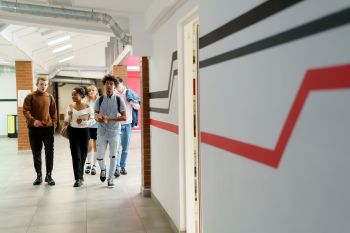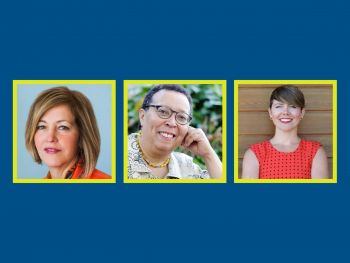News

Stop the Freakout Over Kids’ Screen Time
July 2, 2021Dr. Candice Odgers, UC Irvine psychology professor and member of the National Scientific Council on Adolescence, was one of the researchers interviewed about what the science REALLY says about kids' digital media use.
Press Releases
February 25, 2025: Announcing the UCLA Center for the Developing Adolescent’s 2024 Annual Report
January 17, 2023: New Guides Help Organizations Build Effective Youth Engagement Programs
August 16, 2021: New Report Examines Intersection of Anti-Black Racism on Youth Development
November 30, 2020: Center for the Developing Adolescent Announces New Advisory Board Members
October 1, 2020: Center for the Developing Adolescent Announces New Leadership
Stay in the Know

Dr. Ron Dahl on the Radio Davos Podcast
June 10, 2021“Increasingly, the use of phones and digital access...is being woven into the social fabric in which young people are growing up.” Hear CDA board chair Dr. Ron Dahl talk about how AI might help children and adolescents learn through play on the Radio Davos podcast.

Adolescent Brains Are Wired to Want Status and Respect: That’s an Opportunity for Teachers and Parents
April 20, 2021Author Lydia Denworth talks to leading developmental researchers (including National Scientific Council on Adolescence members David Yeager, Linda Wilbrecht, Ron Dahl, Anthony Burrow, and Nick Allen as well as CDA Co-Executive Director Andrew Fuligni) about what science tells us about the intense social and emotional learning of the adolescent years.

Reframing Adolescent Risk Taking and Resiliency
March 23, 2021The Bezos Family Foundation highlights CDA's work to change the narrative around youth stereotypes with science.

Center for the Developing Adolescent Announces New Advisory Board Members
November 25, 2020We are excited to announce three distinguished new members of our Advisory Board.
LGBTQuarantine: Supporting Queer Youth
November 23, 2020Stephen Russell, PhD, a member of our National Scientific Council on Adolescence, talks to host Ali Wentworth about the challenges faced by LGBTQ+ adolescents and how schools and families can help.
Fewer ‘Likes’ Can Cause Emotional Distress
September 22, 2020In this recent study in Child Development, co-author David Yeager and colleagues show that getting fewer 'likes' than others leads to increased feelings of rejection, especially for young people already feeling victimized IRL.
What Back to School Might Look Like in the Age of COVID-19
July 30, 2020Center founding director Dr. Ron Dahl talks about the importance of engaging adolescents in safety solutions in this illustrated guide on how schools are planning to reopen in the midst of the pandemic.

Neuroscientist Adriana Galván Named Dean of Undergraduate Education
June 26, 2020Center board member Adriana Galván has been named UCLA's dean of undergraduate education. In addition to serving on the Center's Leadership Team and National Scientific Council, Professor Galván is a professor of psychology, holds the Wendell Jeffrey and Bernice Wenzel Term Chair in Behavioral Neuroscience, and is director of the Developmental Neuroscience Lab at UCLA. Congratulations, Adriana!
What Happens When Kids Don’t See Their Peers for Months
June 24, 2020"[Adolescents] have a natural affinity for learning about not just their peers and those strong friendships, but about ‘me’ in relationship to others,” says Dr. Ron Dahl, the Center's Founding Director, in this article for The Atlantic about what it means for young people to miss their friends for so long.
